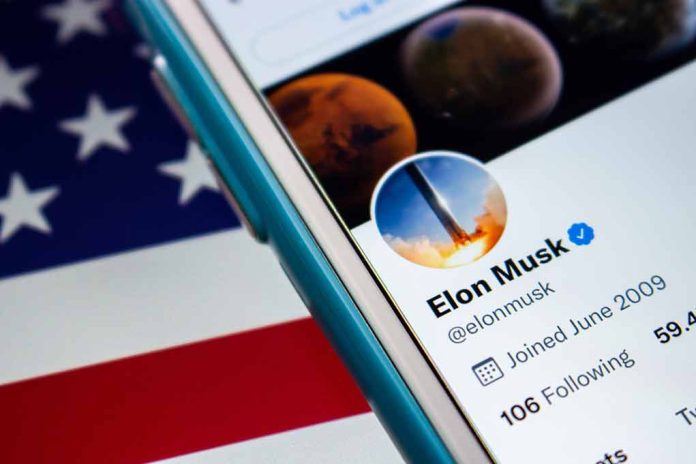
Elon Musk breaks with President Trump over a “big, beautiful bill” that threatens his $175 billion in government efficiency savings as his DOGE leadership role officially ends.
Key Takeaways
- Elon Musk has completed his 130-day term as a special government employee leading the Department of Government Efficiency (DOGE), thanking President Trump while expressing disappointment over new spending legislation.
- DOGE claims to have identified $175 billion in potential savings through proposed federal layoffs, agency shutdowns, and contract cancellations.
- Musk publicly criticized Trump’s “big, beautiful bill” spending package as undermining DOGE’s cost-cutting mission.
- While scaling back his government role, Musk will maintain a small White House office and shift focus to his companies: Tesla, SpaceX, X, and xAI.
- Legal challenges are emerging against Musk, with allegations of federal law violations during his time leading DOGE.
Government Efficiency Mission Concludes
Elon Musk’s formal role in the Trump administration has come to its scheduled conclusion, with the billionaire entrepreneur reaching the 130-day limit for special government employees. During his tenure leading the Department of Government Efficiency (DOGE), Musk worked alongside a team focused on dramatically reducing federal spending through proposed workforce reductions, agency eliminations, and contract terminations. White House officials have confirmed Musk’s departure and revealed he is currently undergoing the standard offboarding process required for administration officials.
“As my scheduled time as a Special Government Employee comes to an end, I would like to thank President @realDonaldTrump for the opportunity to reduce wasteful spending. The @DOGE mission will only strengthen over time as it becomes a way of life throughout the government,” Said Elon Musk, CEO of Tesla, SpaceX, and X.
Spending Bill Creates Rift
Despite the cordial public statements, tensions have emerged between Musk and President Trump over a major spending package currently moving through Congress. The “big, beautiful bill,” as it’s been dubbed by the administration, would increase defense and border security funding while cutting clean energy programs and making adjustments to Medicaid and Medicare. This legislative priority has raised concerns among fiscal conservatives, including Musk, who sees it as contradicting DOGE’s mission of significant government downsizing and cost reduction.
President Trump has acknowledged mixed feelings about the legislation but emphasized the political necessity of getting it through the House. “I’m not happy about certain aspects of it, but I’m thrilled by other aspects of it,” Said Donald Trump, President of the United States.
Business Focus Intensifies
With his government service winding down, Musk is pivoting attention back to his business empire. Tesla shareholders have been pressuring the company’s board to ensure Musk devotes adequate time to the electric vehicle manufacturer, with some pension fund leaders demanding a minimum 40-hour work week commitment from Musk for future CEO compensation. His other ventures, including SpaceX’s Starship program, X (formerly Twitter), and artificial intelligence company xAI, also require significant leadership as they approach critical development milestones.
While Musk’s official government position is ending, he plans to maintain a small office at the White House and continue spending limited time on government work through the remainder of Trump’s term. The decision comes as Musk has noticeably reduced his presence in Trump’s inner circle and scaled back political spending after contributing over $250 million to Trump’s successful 2024 presidential campaign. This shift in priorities follows growing criticism from Tesla investors concerned about Musk’s divided attention during a crucial period for the automaker.
DOGE’s Uncertain Legacy
Despite the apparent tension over spending priorities, Republican leadership has publicly praised DOGE’s efforts. House Speaker Mike Johnson expressed eagerness to implement the department’s recommendations, highlighting the $175 billion in potential savings identified during Musk’s tenure. However, the actual implementation of these cost-cutting measures remains uncertain, particularly as the administration pursues the contentious spending bill that Musk has criticized. The juxtaposition between DOGE’s mission and current legislative priorities illustrates the complex realities of governance that Musk encountered during his brief government service.
Adding to the complications are emerging legal challenges for Musk, with allegations that he violated federal laws during his time leading DOGE. These legal questions, combined with Tesla shareholder concerns about his divided attention, create a complex backdrop for Musk’s transition back to full-time business leadership. Nevertheless, the billionaire entrepreneur maintains that DOGE’s efficiency principles will continue to influence government operations even as he returns his primary focus to revolutionizing the transportation, space, social media, and artificial intelligence industries.



